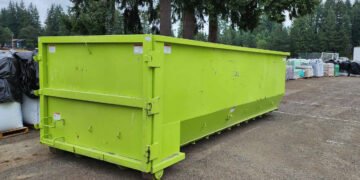Tired of running out of hot water in the shower or anywhere else? Your current water heater electric, it is too much expensive because of electricity bills and occupies lots of space due to its bulky size and now you are ready for a change and some comfort? When it comes to a new water heater, is there a wide choice between tankless or tank options? It is a smart decision if you are considering buying a tankless water heater for your home but don’t know where to start! Well, don’t worry because you have reached the exact page. Tankless water heaters can help you save money and space both as well as provides you endless hot water anywhere in your home. This will be your essential guide to choosing electric tankless water Heaters for your home.
Decide the most quantity of Water heaters
One of the most important considerations when thinking about tankless water heaters is the number of units you will need in your home. This is based on your average hot water consumption, which depends on the number of people who use hot water in your home. For example, if there are eight people in your house, you might need more than one tankless water heater.
But if you live alone or have only one or two other persons, a single water heater will be enough and can meet your all needs. You will just need an experienced plumber for installation. Plumbers have worked in the water heater industry for years. This means that they are the experts who will be able to correctly decide how many tankless water heaters you will need in your home and they will do all the installation for you as well.
Which Size Do You Need?
The second thing to find out is to know exactly what size tankless water heater you will need. According to the United States Energy Information Administration (USEIA), the average home in the United States generally uses sixty-four gallons of water per day. Needless to say, it is a lot of water. So how do you determine the size of a tankless water heater you’ll need?
There are various types and sizes of tankless water heaters. Instead of looking at the capacity, there are 60 gallons in your normal water tank, you want to see the gallons per minute. Tankless water heaters also use input from the Britsh Thermal Unit to help determine efficiency ratings for GPM. Therefore, you will need to watch the GPM, BTU of your home, and the temperature rise in your home.
Determine the required temperature rise
This is another major factor when picking a tankless water heater is how it heats the water to the required temperature. In industry, they call this a temperature rise. Defining the correct heating capacities for your tankless water heater requires information about your home. Perhaps the most important factor is the average temperature of the water entering your home. The most common use of hot water is in the shower, which typically ranges from one hundred to one hundred and five or six degrees Fahrenheit. Restricting the correct temperature rise factor for your tankless water heater is a calculation based on the temperature of the incoming water.
You can find out the average temperature of your water with various online heat map tools. Heat-maps give you a general idea of the incoming water temperature, helping you choose the correct tankless water heater with the exact temperature for your specific needs. In warmer climates, you will need a less powerful tankless water heater. In colder climates, a unit with a higher temperature rise factor will be required. So, it is a variable and depends on the atmosphere and your temperature needs.
Selecting The Power Source For Tankless Water Heaters
Tankless water heaters use mainly three types of energy sources which are natural gas, propane, and electricity. If you plan to use an electrical device, you must determine its influence on your home’s overall energy consumption. Some older homes in the US may have weaker electrical systems. This means that it is necessary to update the house electric system to take full advantage of the best electric tankless water heaters and to save money on energy bills.
Tankless water heaters that run on natural gas and liquid propane are very powerful. For this reason, they are most often used as a whole-house solution for hot water needs. Additionally, natural gas and liquid propane tankless water heaters are a little more energy-efficient, but still, you can save quite an amount of your electricity bills with Electric Tankless Water Heaters.





























































